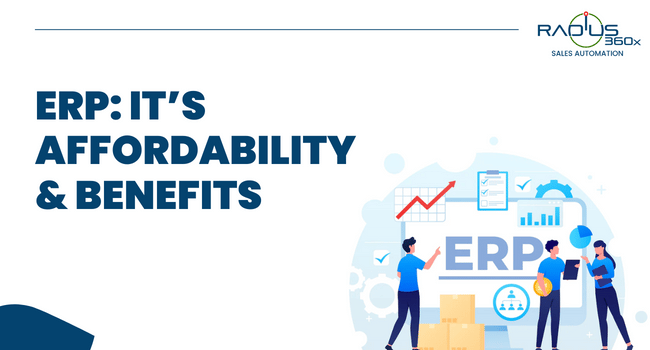
Being a business owner comes with the responsibility of wisely utilizing the firm’s financial resources. Now, you might have to calculate what investments you should make to make your business profitable. Investing in technology for the growth of your business is the best thing you can do for your company in today’s world. We all know that technology helps us achieve more, do tasks quickly, streamline workflows, reduce manual work, and much more.
Using software applications for different business functions can be the best or the worst thing you could do for your business. It can be the best when you can sync information from all applications and use it to manage everything on a single platform. The worst-case scenario would be that you accidentally formed data silos, and finding relevant information is a big hassle. The latter situation would result in annoyance and increased manual work. The solution to avoid such a situation is to invest in an ERP(enterprise resource planning) system.
An ERP system maintains data used across the organization on a single database. It builds an integrated system for connecting all workflows of people in an organization, also collect data from different departments and generate reports according to your specific needs. It will let you manage all your daily activities like accounting, project management, performance management, supply chain management, financials, marketing, sales, e-commerce, and any other function you can think of. ERP systems are considered the one-stop solution for increasing efficiency and profitability.
Have you not yet invested in ERP software because it was too expensive? If you feel that ERP software is too expensive for you, then maybe you have not found the right one. Today we have solutions that allow businesses of all sizes to grow with affordability. You can enjoy the same features at affordable rates because of technological advancements. Times have changed. You no longer need to buy heavy hardware or invest in a full-blown IT team to deploy ERP software. Innovations like cloud, SaaS, and subscription-based fees have made implementing an ERP affordable for businesses of all sizes.
Moreover, your business might highly require the benefits of an ERP and lets you know and analyzes how you utilize the firm’s resources. It ties together your different business processes and enables data flow between them. Moreover, it makes reporting and data analysis easier for decision-makers. You can have an overall picture of what’s happening in the organization in real-time. An ERP enhances your integration and visibility. The ROI of an ERP system is much higher than we view it.

If an organization depends wholly on manual work, then it won’t be able to handle a sudden growth surge. The automation provided by an ERP system helps businesses to scale up quickly and frees the employees of manual work to address other strategic tasks.
Custom reporting is one of the core advantages of an ERP system. An ERP collects data from across the departments of an organization and makes custom reports whenever you need. Custom reporting makes tracking the KPIs of all the departments easier, and you can see which areas need improvements clearly with the benefit of an ERP. It becomes the single platform available for everyone in the organization to compile and house data and generate custom reports whenever needed.
With better reporting comes better decision-making. An ERP also makes data more accessible and shows real-time data to decision-makers. It gives agility to organizations as they can quickly react to changes in the business environment. For instance, managing the supply chain through an ERP will show any discrepancies occurring in real time so that you can take quick action.
An ERP reduces human error through automation. Suppose you don’t have an ERP system; you rely on your employees to re-enter the data again and again whenever required. You are making your organizational processes prone to manual errors. You can skip errors like missed inventory, miscommunication, or missed sales orders with an ERP system being the backbone of your business. Besides, you want your customers to rely on you, so the more errors you can eliminate, the better.
Having an ERP reduces costs. Your employees are free of manual work and can now concentrate on projects that can generate profit for the organization. Also, the workflows become smooth and flow consistently, reducing turnaround time and increasing production speed and capabilities. An ERP also helps to prevent delays and disruptions caused by a lack of accurate and real-time information. Additionally, streamlining workflows reduces costs in the long run.
Availability of accurate information and custom reporting leads to proper planning. An ERP provides valuable insights into all departments making it easier to predict sales, cost, and needed resources. Better planning leads to better resource management, and hence a firm is better able to allocate and manage its resources.
No matter the size of your business, investing in ERP may help you be more productive, efficient, and profitable. Besides the above features, ERP is beneficial for companies that constantly have products coming in and going out. It can help you keep track of individual inventory and simplify supply chain management. Seeing the benefits of ERP systems, it is an investment that you should consider making.